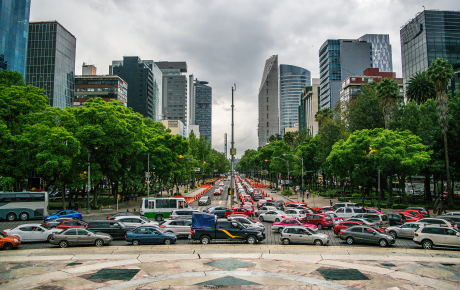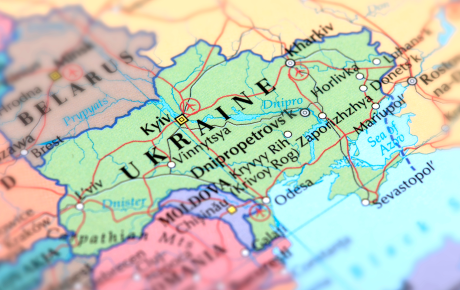
Are Colombia and Brazil heading towards election flash points?
Amidst a resurgence in leftist populism in Latin America, Napoleon Montes-Amaya – Head of Hiscox Crisis Management – Miami hosted a webinar with Control Risks’ Oliver Wack and Mario Braga to take a closer look at the forthcoming presidential elections in Colombia and Brazil, and the security implications for those countries.
As Colombia heads into the first round of presidential elections in May 2022 with three parties and two independents contesting the ballot, it looks to be a three-candidate race with one of those very much an outlier. “We will get more clarity after March 13 when we have the inter party primaries where these [political] movements will determine who will end up representing them, but we do believe the three likeliest names to come out of that will be Gustavo Petro for Pacto Histórico, Sergio Fajardo for Centro Esperanza, and Federico Gutiérrez for Equipo por Colombia,” says Oliver Wack – Head of Control Risks Colombia.
Uphill battle for the right
On the right, Equipo por Colombia is most likely to choose the former Mayor of Medellin Federico Gutiérrez as their candidate, but he has an uphill battle to secure the presidency. “The political right is facing very challenging times,” says Wack, “a lot of which is to do with the disapproval of the Colombian President Iván Duque Márquez who has some of the highest disapproval ratings since since Andrés Pastran's failed peace talks in 1999."
"The political right is facing very challenging times...a lot of which is to do with the disapproval of the Colombian President Iván Duque Márquez who has some of the highest disapproval ratings since since Andrés Pastran's failed peace talks in 1999" Says Wack.
For the leftist movement Pacto Histórico, former guerrilla fighter and Mayor of Bogota, Gustavo Petro is standing on a platform of wealth redistribution, agricultural reform, and cracking down on extractors, says Wack, while he “is the candidate who has made most explicit reference to the shortcomings of the implementation of the peace agreement with FARC.”
Fajardo the favourite
The most likely election winner however, according to Wack, will be the centre left Centro Esperanza where the front running candidate is the former Governor of Antioquia Sergio Fajardo. He is “someone who has run for president in the past and is very much trying to aim at the moderate swing voters who could go either way,” says Wack. “Fajardo has a commitment to implementing the peace agreement with the full understanding that it can’t be implemented to the fullest extent at the moment. You will see attempts to put an olive branch out to these dissident factions [but] there will be a hard line.”
From a security perspective and the risks of strikes, riots and civil commotion (SRCC) a Petro or Fajardo victory after the second round of elections in June would lead to relatively little social unrest, but Gutiérrez winning the presidency would present a much more uncertain picture, adds Wack. “We don’t think it will lead to the massive outpouring of unrest that you might see if an outlier like Gutiérrez was successful, where you would have a fairly immediate explosion of unrest right across the country.”
Bolsonaro under pressure
Later in the year on the 2 October, Brazil will also go to the polls for their next president and the situation is perhaps looking a little clearer with the incumbent Jair Bolsonaro likely to face former president Lula da Silva from the centre left Workers’ Party. “Since presidential elections were allowed in the country in 1994, it’s the first time the incumbent is not leading the polls for reflection,” says Control Risks’ Mario Braga – Lead Analyst, Brazil. “This will have a direct effect on how Bolsonaro behaves in the run up to the vote and will also impact SRCC risks.”
While there is a second group of ‘third way’ centrist candidates including Ciro Gomes from the centre left, Sergio Moro a former justice minister of the Bolsonaro administration, and João Doria – the Governor of São Paulo from the Social Democrats, it’s unlikely that any of these other candidates will make it to the run off says Braga. “Our most likely scenario is that Lula will win the election, with Bolsonaro as a credible alternative and an outlier being a third way candidate.”
“Our most likely scenario is that Lula will win the election, with Bolsonaro as a credible alternative and an outlier being a third way candidate.” Says Braga.
Risks of civil commotion
The SRCC risks play out differently in each of these scenarios adds Braga. “When we think about the next eight months leading up to the vote there are latent risks of civil commotion, especially in the form of political demonstrations escalating into violence. We will be likely to see occasional protests either pro or against the president, or pro and against Lula; these pose risks not only of clashes between these two groups – although the risk is relatively low because security forces have adopted the practice of political groups holding demonstrations on different days – but there are always risks of clashes between demonstrators and security forces. These risks are especially high when it comes to left wing demonstrators.”
And it’s retailers who will be the ones most exposed to civil commotion, says Braga. “Demonstrations usually take place in urban centres so we can expect all the 27 state capitals to have occasional rallies but especially São Paulo, Rio, Brasilia being the hot spots. When we think about other major sectors like mining, energy, and power generation, they are less likely to be impacted by political demonstrations but they are increasingly exposed to social and environmental activism. Financial industry and multi-nationals with assets near protest sites will also be exposed to those kinds of risk.”
Problems with the unions
Union issues could also surface and the ongoing controversy amongst public servants following Bolsonaro’s attempt to strengthen his core support by giving salary rises to federal police, highway police and the penitentiary system has already led to work stoppages in January and there could be a general strike, says Braga. “This is in the lead up to the vote but assume under a Lula administration the risk of strikes will reduce but these risks would remain likely under a second term Bolsonaro, especially if he insists on favouring categories [of public servants] over others.”
In the event of Bolsonaro losing the vote, he is likely to challenge the result which could lead to riots. “He has adopted a very belligerent rhetoric against democratic institutions, especially the Supreme Court and the Superior Electoral Court. He has cast doubt over the country’s electronic voting system…to keep his support base mobilised and if he loses the election, he has already created the conditions to challenge the vote,” warns Braga. “The risk we highlight when we think about riots is that of small radicalised groups and right-wing extremism has increased in Brazil. We flag risks especially of lone wolf attacks, and we need to keep that in mind in the run up to the vote. We cannot rule out attacks on politicians.”
Find out more about the security implications for the forthcoming Colombia and Brazil elections and watch the webinar here.




